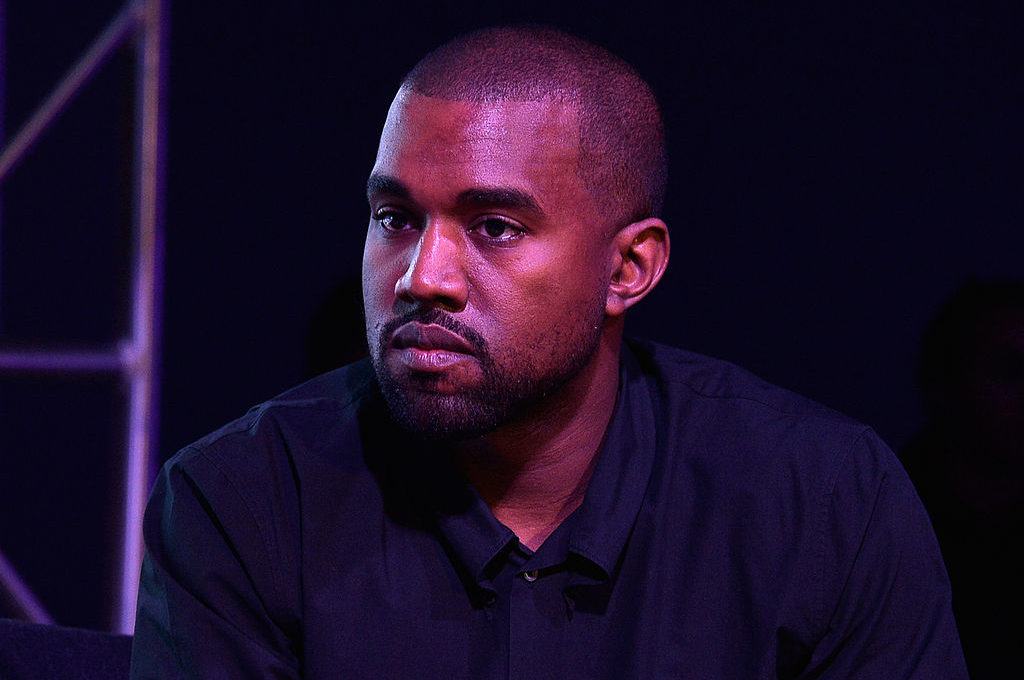It’s impossible to sugarcoat what Ye, The Artist Formerly Known as Kanye West, said that got him in hot water late in 2022. You can’t announce you are going to “go death con 3 ON JEWISH PEOPLE” and then act surprised when your conduct sparks a firestorm.
After getting kicked off Twitter (though Elon Musk would later reinstate him), Ye was subsequently suspended from Instagram for posting an image of a message he sent to Russell Simmons in which he said, “I gotta get the Jewish business people to make the contracts fair.” Given the magnitude of Ye’s superstardom and his history of erratic behavior, this would have been a globe-spanning media event in any case. But Dave Chappelle further exacerbated things while hosting Saturday Night Live by defending Ye, suggesting the outpouring of anger only proved that his paranoia was founded.
I disagree with some of my fellow Jews that Chappelle’s act crossed a red line — I’m not going to defend his right to make jokes about trans people (decades into a career of making fun of everyone) and then hit the fainting couch when he jokes about my own group — but I did think his argument was silly. Ye wasn’t making some sort of carefully constructed sociological argument about Jews and Hollywood — he said he wanted to go “death con 3 on JEWISH PEOPLE”! If someone as famous as West makes a comment like that, he should lose sponsorships and money. Plus, mere weeks after Chappelle defended him, Ye was seen hanging out with Nick Fuentes, a genuinely antisemitic Holocaust denier and far-right internet personality (in a scene straight out of hell itself, the two of them joined Donald Trump for dinner at Mar-a-Lago).
Yet annoying contrarian that I am, this whole episode got me thinking about the very defensive way in which we talk about these group differences, especially when Jews are involved. I can understand why, as soon as someone hears a claim about how Jews are overrepresented in banking or Hollywood, they get their backs up. Historically, these claims have laid the groundwork for antisemitism; they are rarely made innocently. The fact is, however, that Jewish people do appear to be disproportionately represented in, say, Hollywood and the legal professions. Jews make up about 2.4 percent of the American population, and I don’t think anyone would claim with a straight face that we make up just 2.4 percent of, say, high-paying positions in those fields. If you deny this, you’re providing fuel for antisemites. You’re allowing them to say “a-ha — they won’t even let you say it!” — to treat this as some sort of forbidden truth. That only fuels conspiracy theorizing.
Jews are a unique group. We have been chased around for millennia. There are few demographics for whom literacy has been the norm for longer, or who have toted around the same religious texts and commentaries for longer. Moreover, we’ve been excluded from some fields and forced toward others. This is 101-level encyclopedia stuff: “In much of Europe during the Middle Ages, Jews were denied citizenship and its rights, barred from holding posts in government and the military, and excluded from membership in guilds and the professions,” notes Britannica. In many instances, that left fields like banking and moneylending that were seen as a bit dirty.
You don’t emerge from this sort of gauntlet exactly like every other group. To oversimplify, Jews come from a longstanding, forged-in-trauma tradition that emphasizes education, argument and willingness to question authority. This doesn’t mean every Jewish person embodies these traits, of course (we have our squares, too), but it’s silly to deny the possibility that there are average-level cultural differences between us and other groups. And in a free society where we’re not forced into or out of certain fields, these differences probably nudge us more in certain professional directions.
We’re far from the only group to which this applies. Show me a group that is overrepresented in some field, and I promise you there is a non-conspiratorial reason why. Black Americans have punched astonishingly above their weight when it comes to creating commercially successful music, for example, yet no one suggests there is a Black Mafia crowding out other groups. Rather, this goes back to the fact that many blacks descended from slaves who brought an entirely new set of musical traditions to the States. Those traditions have evolved over the years and resonated into our own times in a manner many other styles of music have not.
Now, if someone approaches you at an office party and the first thing they want to talk about is Hollywood Jews, of course you should be suspicious. There is a certain type of person for whom this is a fixation, and such theorizing has led to some very dark places. But if we want to fight back against antisemitic rhetoric, we need to destigmatize discussion of the plain, fundamentally innocent realities that so often serve as its foundation. Otherwise we are handing a potent weapon to bigots and paranoiacs.
This article was originally published in The Spectator’s January 2023 World edition.

























